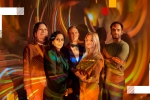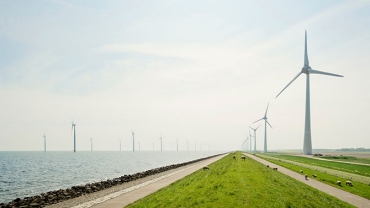
How economists would take on fake news
19/06/20
We only need to look at how regulation of other regulated public goods works
Fake news is a new term that has come into vogue since Donald Trump's political rise. The term has become a metaphor for much more: to qualify information that you find false and that you may even find harmful. How harmful is fake news, for example, to our economy and prosperity? PwC's economists Jan Willem Velthuijsen en Gulbahar Tezel explain.
The term seems subjective: information that one holds true finds another fake news. In this way, there may be a contradiction of views on a specific theme which is so intense that agreement or consensus building becomes complicated. And that's where the use of the term fake news begins to affect our economy and prosperity.
An economy runs ons information
An economy runs on information. Consumers and investors look around them before deciding on larger or more important transactions. They need the right information to make the best decisions. A transaction based on incorrect information just happens to be the best and most wealth-creating transaction by chance.
Base decisions on correct information
The correct information required for economic transactions can be seen as an economic good that produces positive external effects. This means that the entire economy runs better with correct information, not just your transaction. It is in my interest that others at least partly base their decisions on correct information.
The problem of a good with positive externalities
The problem of a good with positive externalities is often that the person who benefits does not pay for it. This holds true for correct information. Precisely for that reason, governments in most countries have set up central statistical offices (CSO’s). An agency that collects figures on, for example, the state of the macro-economy. And that means that we all have the right information at our disposal to start operating in an optimally informed manner.
Correct information is a public good
Correct information also has strong features of what economists call a public good. Much relevant information, such as from CSO, is accessible to everyone, and my consumption of the CSO’s information does not affect the possibility of any other citizen to have that information too.
But public goods are not created in free markets
The problem of public goods is that they would not be created in free markets. Nobody is going to set up a CSO out of their own pocket, because all that precious correct information is immediately accessible to everyone just as it is to the founder. Hence, these institutions are usually set up and paid for by governments. So by and for all of us.
The keyword is trust
Back to fake news. I think an economy benefits from correct information, that is, information that we can trust to be correct, and for which the term fake news would be a very long shot. That could be relevant daily news or financial-economic data, or even meteorological data or insights from virologists. The keyword is trust, being able to trust that information is correct. My specialty is not how trust is created, but trust in information has to do with objectivity and expertise of the authors, with transparent processes for obtaining information, with checks and balances in governance, with cherishing reputation.
Methods to tackle fake news
If correct information is a public good with external effects, economists know methods to regulate its welfare maximising supply, and tackle fake news, namely by looking at how regulation of other public goods with external effects works: energy, telecom, public transport, healthcare, water, and more.
Fight fake news according to a four-step plan
Economists would fight fake news according to a four-step plan:
- First of all, define what correct information is, for example for the information to which the aforementioned principles apply. To make an attempt: coming from someone with a reputation for expertise and impartiality, based on data that has been collected transparently and analyzed properly, under a neat governance with checks and balances. Defining what we consider correct information is essentially a fairly technical action, just as we as a society define what clean water is, or secure and affordable electricity.
- Next determine what we, as a civilized, rich society, think that everyone is entitled to, for example daily news and financial and other data. Determining what everyone is entitled to is a political choice, just like when we determine which healthcare everyone is entitled to.
- Then think about the design of production and delivery: who can do it, to whom can we leave it or should we leave it, what works best in practice? To a government-owned CSO, to private newspapers, tendering to private operators, you name it. Compare this to how we came to the choice of public transport companies or gas pipeline operators to provide their public services.
- Finally write down the rules of the game in a law and install an adequate regulator. That is, one that can issue fines if there are violations, read: when fake news is presented as correct information or vice versa. What must suppliers in the regulated market adhere to to guarantee quality and availability.
Contribute to the definition and credibility of correct information
We are currently seeing the principles of this thinking at work during the coronacrisis. By referring to science and allowing himself to be supported by the State Institute for Health RIVM, Prime Minister Rutte contributes to the definition and credibility of correct information, and to the weight of correct information in welfare enhancing decisions. He has determined that we are entitled to the same information without exception, through the stream of press conferences, together with a sign language interpreter. He considers the scientific approach and great transparency in figures, analyses, assumptions and methods, produced by a bulwark of expertise, as a starting point for a strong public good, and it is hard to argue about that.
How things can go wrong if you do not take the steps
Now RIVM as a knowledge provider is not up for discussion, but how things can go wrong if you do not take the steps we saw six months ago with the nitrogen debate. Then fierce discussions arose about the measurement methods and the definitions, and RIVM's reputation as an impartial expert was immediately severely damaged. Something clearly went wrong in steps 1 and 2.
A regulator for fake news
What we haven't got around to yet in the new world of fake news are steps 3 and 4. We don't yet have a regulator who can compel social network companies to fend off fake news. We have to make do with some form of self-regulation from Facebook and Twitter and the fact checkers of the newspapers. There is also no neatly tailored law that you can rely on as a citizen with a claim about alleged fake news. The good news is perhaps that we only need to look at how regulation of other regulated public goods works to come up with an adequate way to fight fake news.

Contact

Jan Willem Velthuijsen
Energy Transition Economist, PwC Netherlands
Tel: +31 (0)62 248 32 93

Gülbahar Tezel
Partner Strategy&, Lead Denktank Energietransitie, PwC Netherlands
Tel: +31 (0)61 391 56 71

















